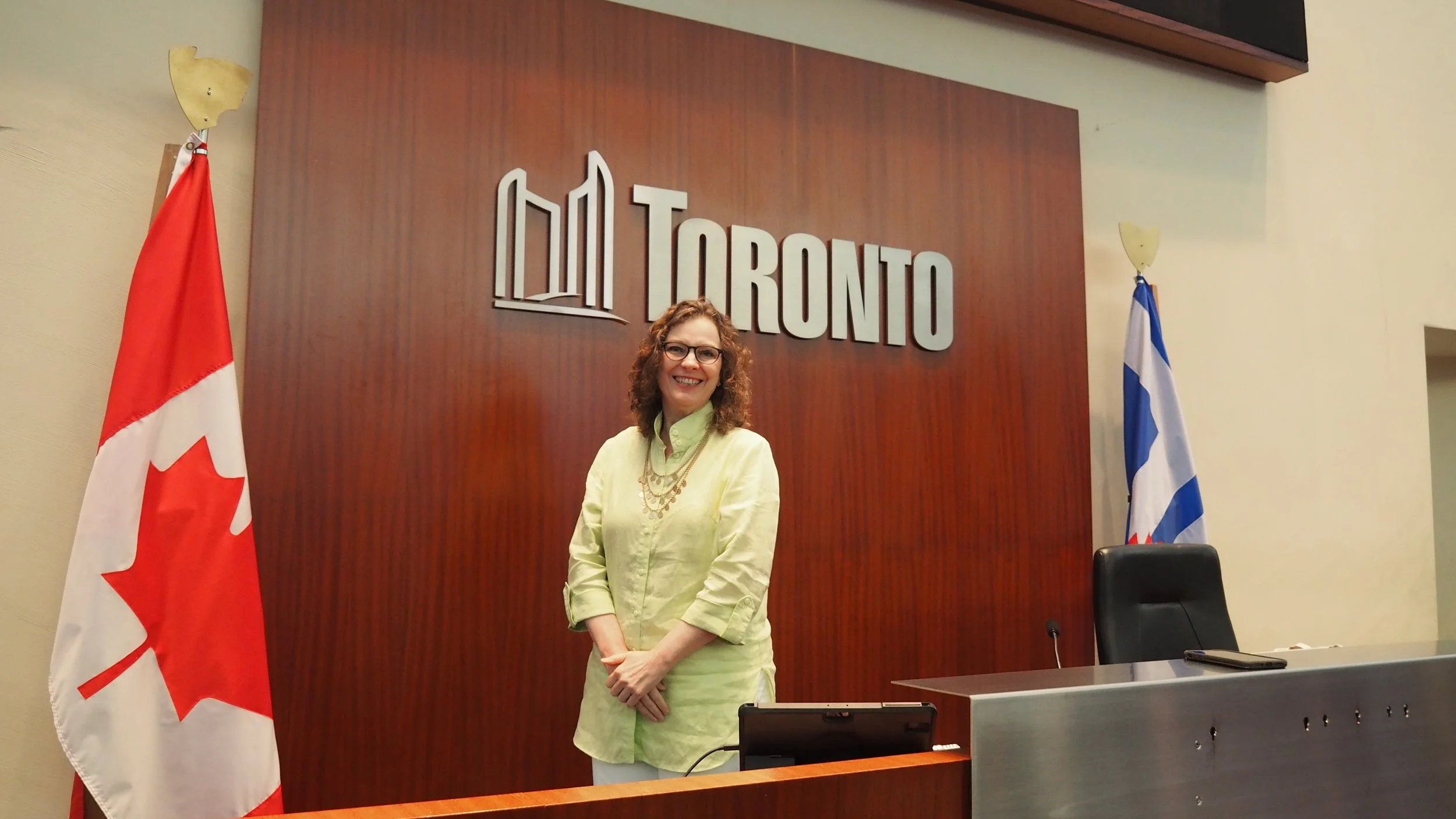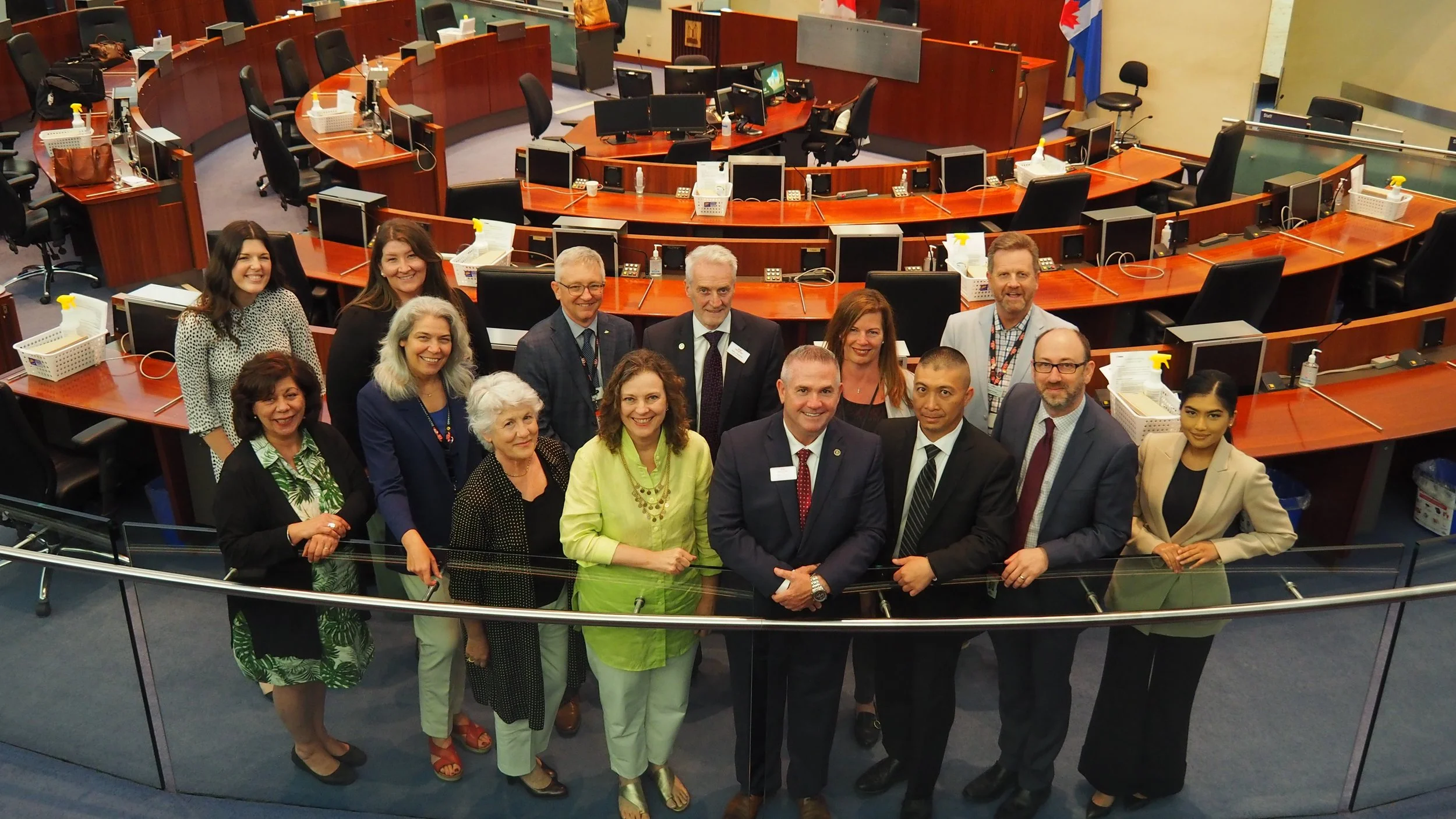TTC Chair's Corner
This term, I've had the honour of serving as Chair of the Toronto Transit Commission (TTC). As Chair, I've spearheaded a number of initiatives, including accelerating fleet electrification, advancing organizational transformation and modernization, fast-tracking critical state-of-good-repair work, implementing service improvements on our busiest routes, prioritizing customer service and communications, and securing record-setting investment from all orders of government.
Earlier this month, we held the final meeting of the term where the Board received updates from TTC staff on several critical initiatives, including our Digital Connectivity Strategy, Automatic Train Control (ATC), and fleet electrification, as well as our 5-Year Service Plan (2024-2028) & 10-Year Outlook Reset. As I said in my final remarks to the Board, Toronto is our country's economic engine and the TTC helps make this engine run. In a recent report, the C.D. Howe Institute estimated that the TTC provides up to $2.7 billion in wider economic benefits annually.
Public transit will continue to play a critical role as we navigate our city's recovery from the COVID-19 pandemic, but there are still many challenges ahead for the TTC. Over the last two years, our lifestyles and travel patterns have shifted dramatically, resulting in massive ridership losses for public transit agencies around the world. While these numbers are steadily increasing, there is an important conversation taking place about the future of public transit in major cities as we adapt to the "new normal" – how people live, work, and commute in a post-COVID world.
When I first accepted the role of TTC Chair in 2018, I could not have anticipated what lay ahead for us in the years to follow. I want to thank my fellow Board members, the TTC's capable and dedicated leadership team, and the agency's over 14,000 employees for an unpredictable but productive four years. It is bittersweet that the Board has adjourned for the term, but I am confident that the TTC will keep Toronto moving day-in and day-out, as they always have.
Update – Automatic Train Control (ATC) Installation on Line 1 Yonge-University
The TTC's state-of-the-art Automatic Train Control signalling system is in-service from Vaughan Metropolitan Centre to Eglinton Station on Line 1 – Yonge-University. The final phase, from Eglinton to Finch, is now fully installed and testing is 85% complete. At our July Board meeting, TTC staff advised that we are on track for full implementation on all of Line 1 this fall.
As TTC Chair, the ATC project has remained one of my top priorities. When a revised schedule was presented to the TTC Board in 2019, I moved a motion to keep the project on-time and on-budget. After years of subway closures for construction, I am looking forward to seeing the project completed and fully operational in the coming months.
On Line 1, the TTC's legacy fixed-block signalling system has been in operation since the subway opened in 1954, more than 67 years ago. ATC controls train speed and separation automatically, which allows for reduced travel times, additional capacity, and more reliable service.
Charging Ahead with Fleet Electrification
This fall, the TTC will be finalizing a large-scale procurement of 240 new electric buses. The City of Toronto and TTC are also seeking funding through the Federal Zero Emissions Transit Fund to support the procurement of 160 additional eBuses, for a total of 400 new vehicles to sustain our fleet through 2025. These procurements are critical to achieving our ambitious goal of reaching net zero by 2040. Once we achieve full fleet electrification, the TTC will see annual GHG emissions reductions of 250,000 tonnes, bringing us closer to meeting the targets set out in the City's TransformTO climate strategy.
Our minifleet of 60 eBuses – the largest in North America – has already delivered substantial benefits to our city. In just 2.5 years, our eBuses have driven over 2.5 million kilometres, reducing GHG emissions by 3.3 million metric tonnes. eBuses also save the TTC ~$50,000 per vehicle in annual savings on fuel and maintenance costs over their clean diesel counterparts. Between 2023 and 2040, the TTC anticipates ~$400 million in Operating Budget savings as a result of the switch to electrified buses.
Advancing fleet electrification has been one of the highlights of my term, and I look forward to the continued success of our Green Bus program.

